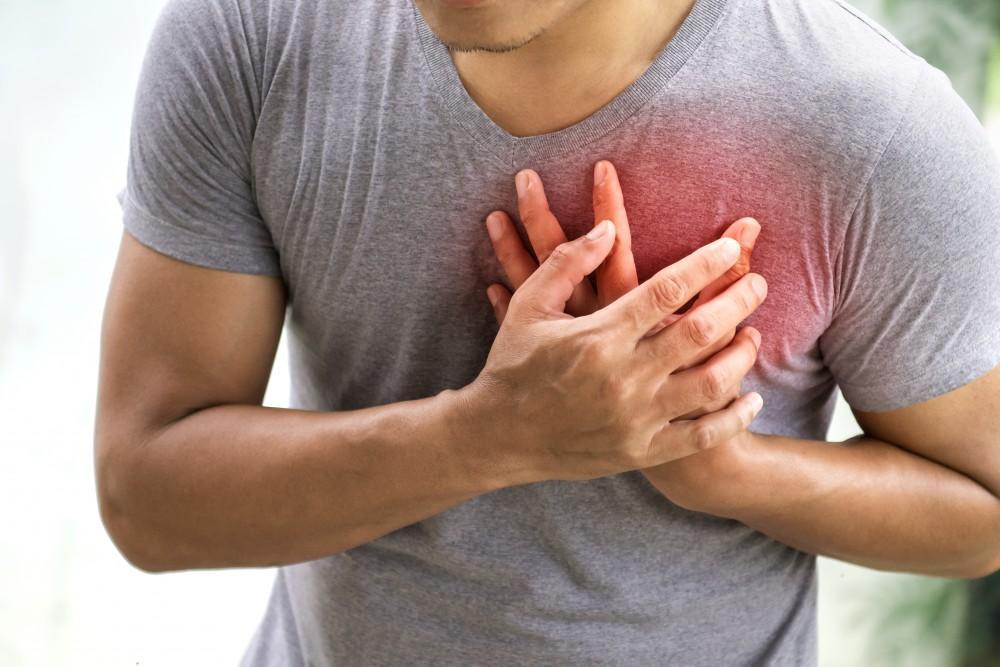Most discomforts and pains are seldom significant. However, there are certain crucial symptoms that warrant immediate medical attention. Consult your physician if you experience any of these symptoms.
Weakness in Your Arms and Legs

Experiencing numbness or weakness in your leg, arm, or face may indicate a stroke. This is particularly critical if the symptoms are localized to one side of your body or if they appear suddenly without any prior warning.
You might also be experiencing a stroke if you feel lightheaded, are unable to maintain your balance, or struggle to walk. Additional signs include a sudden severe headache, difficulty seeing, or challenges with speaking or comprehension.
Do not delay in seeking assistance to determine if the symptoms subside. It is imperative to obtain emergency medical help immediately, as every second is vital. If you receive medication to dissolve the clot within 4.5 hours of the onset of symptoms, you can significantly reduce the risk of enduring long-term complications.
If you have cardiovascular issues such as hypertension or atrial fibrillation, it is crucial to be vigilant regarding these symptoms. Individuals with these conditions have a heightened risk of experiencing a stroke. Educate yourself further on how certain arm issues may be connected to heart health.
Chest Pain

We’ve all felt chest pain in some form, whether it’s a dull throb or a sharp stab. Because it can be a sign of a serious problem, it’s important to get medical help right away. Chest pain or pressure can be a sign of a heart attack or heart disease, especially if it happens when you’re active.
People who’ve had heart-related pain describe it as a burning, full, or tight feeling in the chest. It’s sometimes a searing sensation in one or both arms that can move up into the neck, jaw, and shoulders. The discomfort can last for more than a few minutes, get worse when you’re active, go away, and then come back.
Often, chest pain doesn’t have anything to do with your heart. It could be due to things like heartburn or other digestive issues.
Don’t try to tough it out or wait for it to go away. See a doctor right away if you have new or unexplained pain in your chest. Learn more about other causes of chest pain.
Tenderness and Discomfort in the Back of Your Lower Leg

This may indicate the presence of a blood clot in your leg, known as deep vein thrombosis (DVT). This condition can arise when you have a disorder that impacts your blood’s ability to clot. Additionally, prolonged periods of sitting or being bedridden can also lead to its development. Factors such as pregnancy, the use of birth control pills, smoking, and obesity can further increase the likelihood of DVT.
If a clot is present, you may experience pain or tenderness in the affected area. Swelling may occur, and the skin might feel warm or appear red.
While it is not unusual to experience soreness following exercise, it is important to seek medical attention if you observe swelling, warmth, and redness. DVT can pose serious health risks. Blood clots in the legs have the potential to dislodge, travel through the bloodstream, and obstruct blood flow to the lungs. This condition is referred to by medical professionals as a pulmonary embolism, which can be fatal. For more information, please explore the symptoms of blood clots and how to identify them.
Blood in Your Urine
There are various reasons you may notice blood in your urine.
In the case of kidney stones, the presence of blood can cause your urine to appear pink or reddish. These small crystalline formations in your urine can lead to significant pain in your side or back.
Your physician may perform a CT scan or conduct an ultrasound to visualize them. Certain kidney stones may pass naturally, but the waiting period can be quite uncomfortable. You may require a procedure to fragment larger stones.
If you notice blood in your urine, experience increased frequency of urination, or feel a burning sensation during urination, you might be suffering from a urinary tract infection affecting your bladder or kidneys. Seek medical assistance promptly. This condition has the potential to cause kidney damage and lead to more severe complications.
Blood in your urine can occasionally indicate other health issues, such as bladder or kidney cancer. Educate yourself further about the symptoms of bladder cancer.
If you notice a whistling noise while breathing, it is advisable to reach out to your physician. Wheezing may indicate asthma, a lung condition, a serious allergic reaction, or contact with harmful chemicals. It may also suggest pneumonia or bronchitis.
The treatment will vary based on the underlying cause. For instance, if asthma is the culprit, an inhaler might be included in your treatment strategy to prevent flare-ups. Discover more about the factors that contribute to wheezing.
Suicidal Thoughts

If you are experiencing feelings of hopelessness, as if there is no solution to your problems, it is crucial to seek assistance immediately. Speaking with a trained counselor can significantly improve your emotional state.
Contact 911 or a suicide hotline. In the United States, you can reach the National Suicide Prevention Lifeline at 800-273-TALK (800-273-8255). This service is free and operates 24 hours a day. Your conversation will remain confidential, allowing you to discuss your feelings comfortably.
Additionally, you have the option to visit an emergency room or a walk-in clinic to request help. A medical professional or counselor can guide you to a specialist who can provide the necessary support. It is also important to educate yourself about the warning signs of suicide.